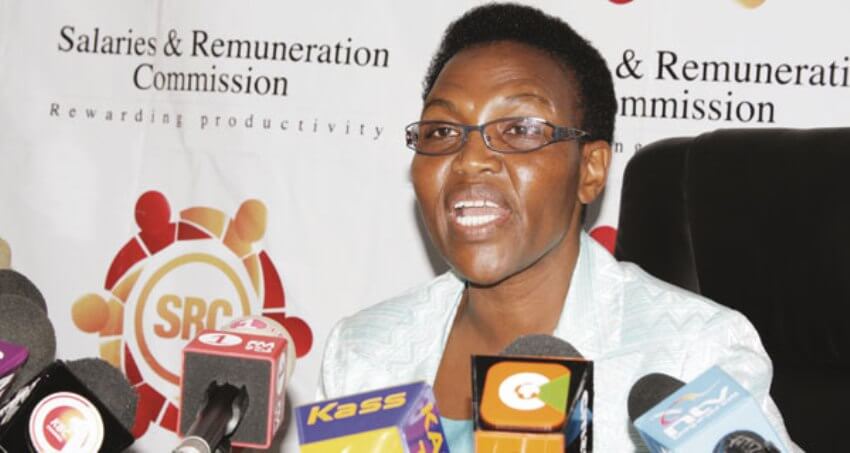Keep here to know the current Parastatal salary scales in Kenya. Parastatals are among the best paying institutions in Kenya, even so, there are several parastatals which pay less than others.
This is why we present to you the following Parastatal salary scales in Kenya to enlighten you on how salaries are shared in parastatals.
Time after time, the SRC Salaries and Remuneration Commission releases new grading for pay structures on parastatals. This is mainly based on the CBAs signed and the economic state of the country at that particular time.
According to the latest grading on pay structures. Even the chief heads in parastatals will not earn a salary exceeding Ksh 1 million.
SRC used the Paterson grading system to determine the salaries of each individual based on their grading. The model classifies CEOs between class E and D1, which are the highest and lowest, respectively.
According to the SRC salary scale, the lowest-paid CEO in service and regulatory State corporations will earn Sh253,333 while the highest will take home Sh812,970 per month.
See also PSC Salary Scales
Types of parastatals
This sector comprises 98 parastatals that offer services or are regulators in the market. They include the Kenya Institute of Curriculum Development (KICD), which provides a service, and the Retirement Benefits Authority, a regulator.
Some service sector institutions charge a fee for their services, while others depend purely on the National Treasury for funding.
Under the 49 commercial state corporations such as Kenya Power and KenGen. The highest-paid CEO will earn Sh903,300 while the lowest will take home Sh281,481 per month.
“The total number of jobs evaluated in service and regulatory corporations were 9,843 while those in commercial were 6,270,” said SRC Chairperson Sarah Serem.
Consulting partner Deloitte and Touche undertook the CEOs’ job evaluation. The new pay structure is expected to bring equity and harmony in the public sector.
Serem said the Commission considered several factors while preparing the pay structure, including budgetary allocation from the Exchequer, ability of the institutions to pay and salary survey.
She said the job evaluation aimed to determine internal equity of jobs within an institution. The external ownership between institutions would facilitate the development of a harmonised Parastatal salary scales in Kenya.
Parastatal salary scales in Kenya
The Commission, however, clarified that CEOs currently earning more than Sh1 million would continue to do so as the law does not permit revision of salaries downwards.
“The structure is for four years when the next pay review will be done. So those who are earning higher than our recommendations can continue to draw their pay. It’s only those starting CEOs who will be subjected to the new pay structure,” Serem said.
“The Commission’s desire, in the long run, is to have a salary structure that will ensure the principle of equal pay for work of equal value. This is important in ensuring stability and fair play of public institutions.”
According to Serem, the Parastatal salary scales in Kenya will break the notorious cycle of public servants shifting from one parastatal to others seeking better salaries while their productivity is vague.
Advantages of the salary scales
Serem added that productivity could also be enhanced through partnerships. Partnering with unions in an endeavour to establish healthy industrial relations.
Serem told more than 100 CEOs and senior managers of State corporations that jobs in their institutions will be placed in salary grades as evaluated with a salary structure of a minimum of 12 notches for each grade to ensure adequate progression and compression ratio.
The new Parastatal salary scales in Kenya will streamline operations in parastatals. It will ensure that servants are paid salaries relative to their contributions.




